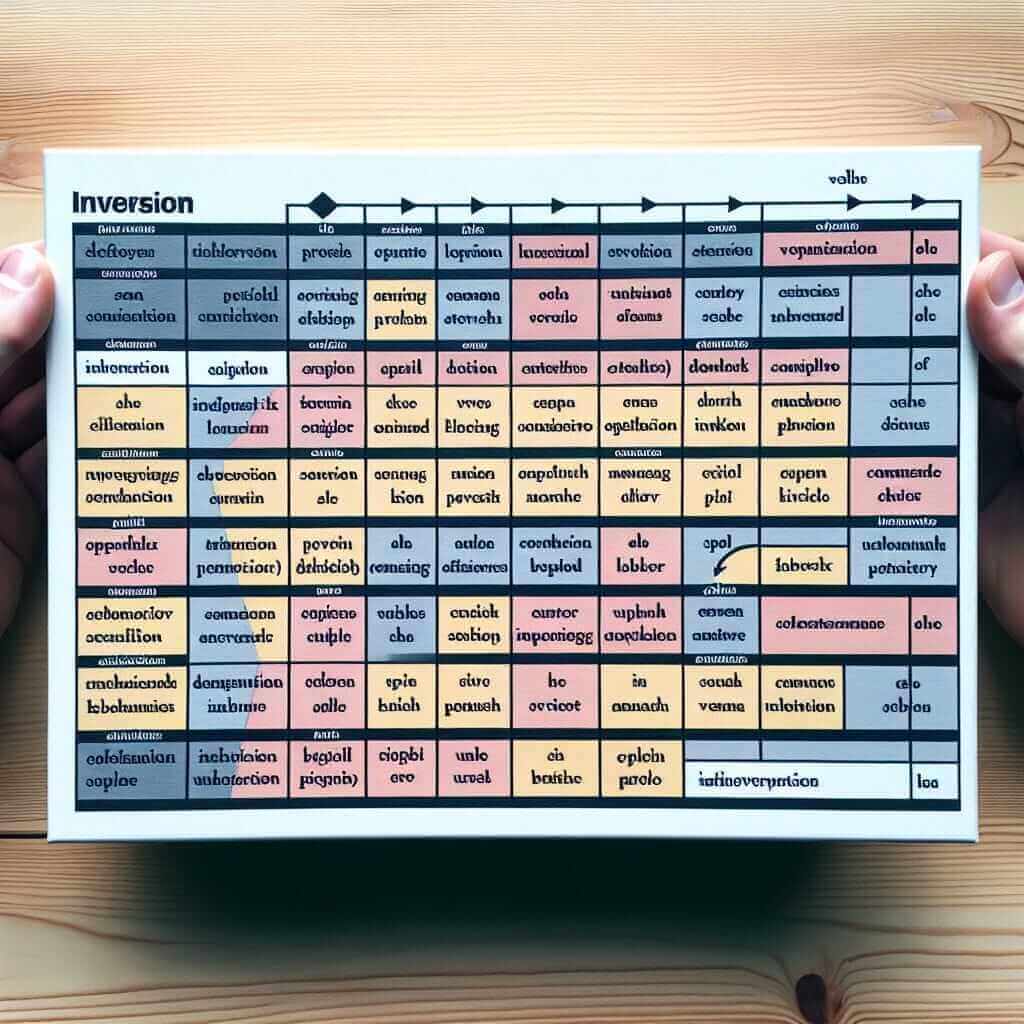“So beautiful was the scene that I was mesmerized” is an example of a grammatical structure called inversion. Inversion is when the normal word order of a sentence is reversed, typically for emphasis or stylistic effect. While not overly common in everyday speech, mastering inversion can add sophistication and variety to your writing, ultimately helping you achieve a higher band score on the IELTS exam.
Let’s look at a few examples of how inversion can be used in different sections of the IELTS:
Speaking Part 2:
- Describe a time you visited a beautiful place.
- “Never before had I witnessed such breathtaking scenery. So vibrant were the colours, so pure the air, that I felt completely at peace.”
Writing Task 2:
- Some people believe that economic progress is the only way to measure a country’s success. To what extent do you agree or disagree?
- “Important though economic indicators may be, they represent only one facet of a nation’s well-being. Equally crucial are factors such as social justice, environmental sustainability, and citizens’ overall happiness.”
Listening Section 3:
- (In a lecture about an artist) “…and in his later works, rarely do we see the vibrant colours of his youth. Instead, a muted palette reflects…”
Understanding Inversion and Its Significance in IELTS
Inversion is used sparingly, often in formal or literary contexts, but its correct application in your IELTS writing and speaking can demonstrate a strong command of grammatical structures, contributing to a higher score in the Grammatical Range and Accuracy criterion. It allows you to:
- Emphasize specific aspects of your ideas: By changing the typical subject-verb order, you draw attention to particular words or phrases.
- Create a more formal and sophisticated tone: This is particularly beneficial in Writing Task 2, where a higher register is expected.
- Demonstrate variety and flexibility in your language use: Examiners look for evidence of a wide-ranging vocabulary and grammatical structures.

The Formula and Application of Inversion
Structure:
Negative or Limiting Adverbial + Auxiliary Verb + Subject + Main Verb
Examples:
- Never before had I seen such a magnificent sunset.
- Not only did she excel in her studies, but she was also a talented musician.
- Under no circumstances should you open this door.
- Hardly had I sat down when the phone rang.
Important Notes:
- The auxiliary verb must agree with the subject in number and tense.
- If the sentence is in the present simple or past simple tense, and there is no auxiliary verb, “do,” “does,” or “did” is added.
- This structure is most commonly used with negative or limiting adverbials. Some common ones include: never, rarely, seldom, hardly, scarcely, no sooner, not only, under no circumstances, at no time, on no account.
Applying Inversion in IELTS Writing
Example (Writing Task 2):
Topic: Many people argue that space exploration is a waste of resources that should be allocated to solving problems on Earth. To what extent do you agree or disagree?
Body Paragraph with Inversion:
“While it is undeniable that Earth faces numerous pressing issues, such as poverty and climate change, to disregard space exploration entirely would be shortsighted. Not only does venturing into the cosmos advance our scientific understanding, but it also fosters technological innovation with practical applications here on Earth.”
Analysis:
- The use of “Not only…but also…” creates a parallel structure and emphasizes the two key arguments in favour of space exploration.
- The inverted structure (“Not only does…”) adds emphasis and sophistication to the sentence.
Common Errors to Avoid
- Incorrect Verb Placement: Ensure the auxiliary verb precedes the subject.
- Incorrect: Rarely she goes out without her phone.
- Correct: Rarely does she go out without her phone.
- Overuse: Use inversion sparingly. Too much inversion can make your writing sound unnatural and forced.
- Incorrect Context: Inversion is generally used in formal writing and speaking. Avoid using it in informal contexts.
Conclusion
Mastering inversion can significantly enhance your IELTS writing and speaking by adding emphasis, sophistication, and variety to your language. By understanding the structure, practicing its application, and being mindful of common errors, you can confidently incorporate this advanced grammatical tool to boost your score and impress the examiners. Keep in mind that while grammatical accuracy is crucial, it’s equally important to use inversion appropriately and naturally within your writing and speaking.